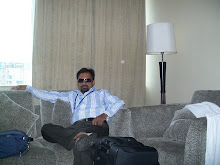Impact of Globalisation on Tribal Groups in India
(An Anthropological Study on Dhankut of District Bahraich, U.P.)
Dr. Alok Chantia* & Dr. Preeti Misra**
*Lecturer, Dept. of Anthropology, Sri J.N.P.G. College,Lucknow,Email: alokchantia@rediffmail.com
**Lecturer, Dept. of Human Rights, School for Legal Studies, Babasaheb Bhimrao Ambedkar University, Lucknow, E Mail: misra9us@gmail.com
Keywords: Globalisation, Marginalised, Tribe, Culture, Dhankut
Abstract:
Man made culture but culture has its own carrying capacity and limit. With the increase in material and moral density a new phenomenon emerged in the form of globalization for smooth survival of human being across the world. It is a well known fact that purchasing capacity of every individual on global level is not the same which generates the feeling of inequality. So far as globalization process is concerned it is reflected in different perspective with regard to different peoples. The fruits of globalization have not reached to tribal areas fully. Except facilities like roads, elementary education, primary health centre, and panchayat, no concrete change has taken place in the lives of tribal people.
Under the Indian Constitution the government can declare some specific groups as tribal groups on the fulfillment of certain conditions. The number of tribal groups have increased manifold in post Constitution India. Today we have 692 tribal groups in India and 9% of the total population is tribal. Due to increase in tribal groups fruits of privileges given to them by the Government are decreasing. Some actual tribal groups are still far away from being listed as tribal groups. Anthropologically actual tribal groups are still behind the curtain and devoid of all basic facilities of life. The case of a group Dhankut living in District Bahraich of Uttar Pradesh is no different and is glaring example of violation of human rights of actual tribal people. Dhankut are living in small pocket of Dhankuttypura of District Bahraich. Dhankut’s total population is 2687(2001 census) and their dialect is Dhankutty in a rhythmic form. They practice cross cousin and parallel cousin marriage which is a taboo in north India and legally prohibited too under Hindu Marriage Act 1955. Even after having these tribal characteristics they are not included in the category of scheduled tribe. Though they are not agricultural people, cereal selling is still their main occupation. They are poor and illiterate. With 5% literacy rate only three of them are in fourth class government job. No literature is available about
them neither in government records nor in district gazetteer. They have full faith in their traditional panchayat and traditional God “Gullabeer.” They are struggling for their tribal status since 1973 but have not succeeded so far. Dhankut want tribal status for themselves to enjoy the benefits provided by the government in the era of globalization.
In the present study 300 respondents have been taken randomly to analyse the effect of globalization on their lives.90% respondents are of the view that globalization has taken away their traditional way of life and given nothing in return .79% think that traditional occupation is not of much help in the era of globalization. 80% feel that they have become more poorer in last 20 years. The study revealed that though globalization is universal phenomenon but its effect is not homogenous at micro level as in case of Dhankut living in Bahraich district of Uttar Pradesh.
Subscribe to:
Post Comments (Atom)

No comments:
Post a Comment